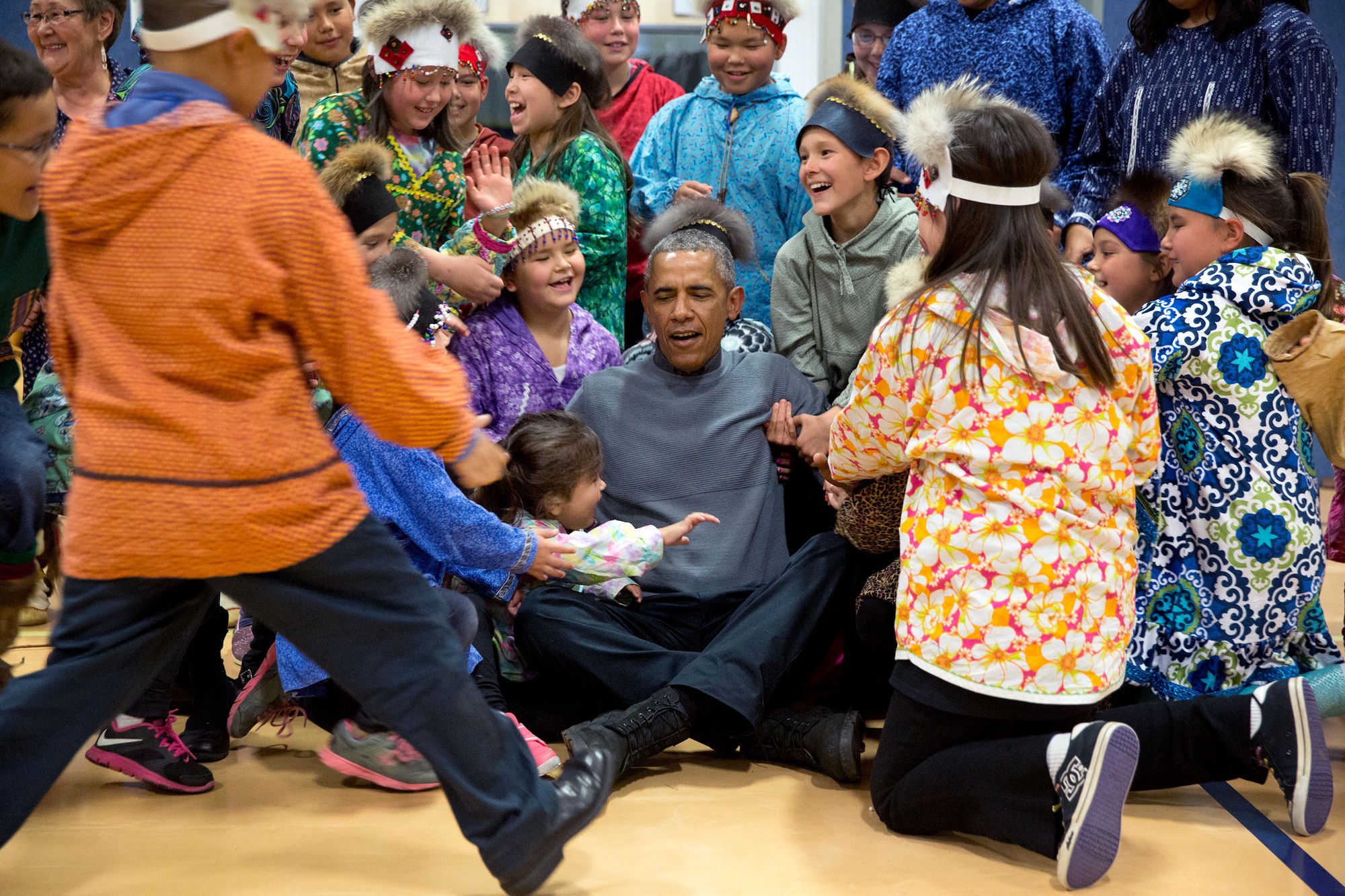

My ancestors have occupied the lands known as Alaska for over 10,000 years. Our traditions are steeped in history and intimately connected with the land and its natural resources. One month ago, President Obama made a historic and unprecedented three-day trip to Alaska and I had the honor and privilege to accompany him. Looking back, I’m blown away by the fact that this was the first time a sitting President has ever visited rural Alaska and traveled above the Arctic Circle. As an Alaska Native who was born and raised in the state, the President’s trip was uniquely moving for me. I was fortunate enough to witness a moment in history. A moment that we may never see again in our lifetimes.
I grew up in a pretty uniquely “Alaskan” way. My summers were spent subsistence and commercial fishing for wild salmon, salmon that depended on the health of the environment to flourish. In my mother’s small Dena’ina Athabascan village, I’d help her and my grandmother filet and smoke salmon for the winter in the traditional Dena’ina way. Other summers I spent commercial fishing in Bristol Bay with my Dad on a salmon gillnet boat. Whether for subsistence or economic reasons, salmon and other natural resources were the lifeblood of my family, and the same stands true for many of Alaska’s people.
Reflecting on my life thus far, it was Alaska’s land and natural resources, coupled with the strong Dena’ina and Yup’ik cultural values instilled in me by my parents and grandparents—humility, hard work, generosity—that have allowed me to make it as far as I have in life. I often joke that I was fortified by a diet of moose, salmon, and berries, and that I would probably survive a zombie apocalypse with my Bear Grylls-style survival skills. But these natural resources do more than just fortify the body, they fortify the spirit, and they are essential to cultures that have thrived for millennia. My connection to my Athabascan and Yup’ik roots is the well from which I draw strength when faced with obstacles that would be otherwise insurmountable. And it’s this grounding, along with the guidance of my parents and grandparents, which has allowed me to make the journey from rural Alaska, as a first generation college kid, to the Ivy League and, most recently, to the White House.
This is why accompanying my boss, my President, Barack Obama, to Alaska was the proudest moment of my life. Hands down. And why it was such a privilege to be part of the White House team that helped orchestrate the trip from A to Z. The fact that President Obama cared to see a piece of Alaska that is typically shrouded from view by remoteness and a lack of accessibility, and that he was able to witness first-hand why Alaska’s natural resources are worth protecting, filled me with hope. And it filled Alaskans with hope. Hope that our futures, our cultures, our lifeways, have been noticed and are valued as an essential part of the intricate and majestic tapestry that is America. For that, I would like to say thank you. Thank you to Alaskans for giving our President the warmest welcome imaginable. And thank you to my President, Barack Obama, for prioritizing the preservation of our way of life.
Raina Thiele is Associate Director of Intergovernmental Affairs and Public Engagement and works as the liaison for tribes and the American Indian and Alaska Native community. Raina earned her B.A. from Yale College and her Master in Public Policy degree from the Harvard Kennedy School of Government. Born and raised in Alaska, her family hails from the rural communities of Pedro Bay Native Village on Lake Iliamna and Alexander Creek near Mount Susitna. She is Dena’ina Athabascan and Yup’ik.

